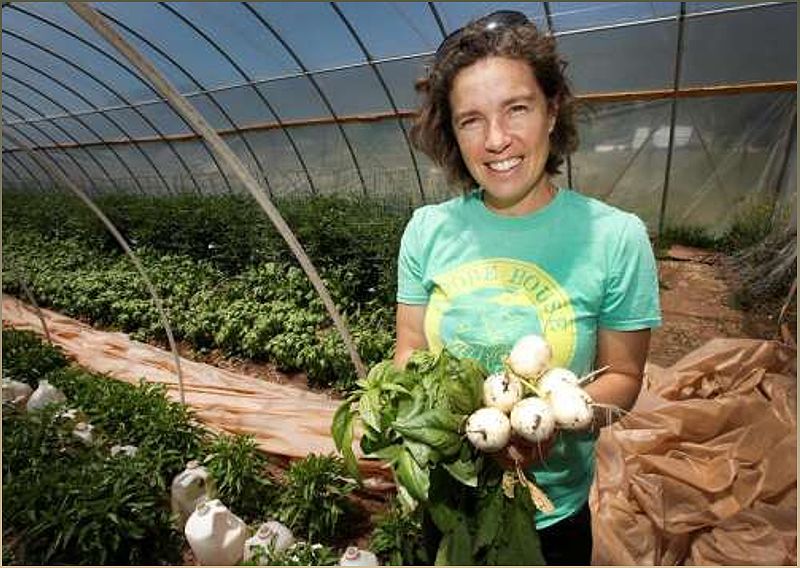Durango organic farmer Linley Dixon is taking her fight for eco-friendly practices in organic farming to Capitol Hill. With the Farm Bill reauthorization approaching, Dixon aims to ensure that USDA regulations prioritize climate-smart techniques. Her focus is on challenging the certification of Soilless Hydroponic Container Operations (SHCOs) as organic, which she believes undermines the integrity of organic farming.
Advocating for Climate-Smart Farming
Durango organic farmer Linley Dixon is taking her fight for eco-friendly practices in organic farming to Capitol Hill. With the Farm Bill reauthorization approaching, Dixon aims to ensure that USDA regulations prioritize climate-smart techniques.

( Credit to: Durangoherald )
As the owner of Adobe House Farm, Dixon brings a wealth of knowledge to the table with her background in plant and soil science. She is deeply passionate about the benefits of organic farming and its potential to mitigate climate change.
Dixon’s main concern lies with the USDA’s certification of Soilless Hydroponic Container Operations (SHCOs) as organic, which she believes undermines the integrity of organic farming. She argues that SHCOs do not comply with the requirements for organic plans, such as crop rotation and soil fertility management.
Challenging the Certification of SHCOs
The Organic Farmers Association, along with Dixon, is striving to ensure the integrity of organic farming. They argue that allowing both soil-based and hydroponic production to be certified as organic undermines the consistent standards set by the Organic Foods Protection Act.
Dixon points out that SHCOs use fertilizers with a heavy climate impact and rely on fossil fuels for production. She believes that no standards have been established for SHCOs, which raises concerns about their environmental impact.
Dixon singles out Driscoll’s, a California-based seller of berries, as a major contributor to the problem. With approximately 70% of the organic berry market share, Dixon fears that the certification of more SHCOs as organic producers will further disadvantage small organic growers and potentially force them out of business.
Advocating for Healthy Soils and Pastures
In her upcoming meetings with lawmakers, Dixon will advocate for organic crops to be grown in healthy soils and organic livestock to be raised on healthy pastures. Her goal is to ensure that the USDA upholds the law and supports climate-smart practices in organic farming.
The Farm Bill reauthorization provides an opportunity for policymakers to address these concerns and prioritize sustainable and environmentally friendly practices in the organic farming industry. By promoting healthy soils and reducing reliance on fossil fuels, the USDA can help organic farmers like Dixon continue to provide consumers with nutritious, environmentally friendly food options.
Protecting the Integrity of Organic Farming
As Dixon heads to Capitol Hill, she represents not only her own farm but also the countless organic farmers across the country who are committed to sustainable agriculture. With their livelihoods at stake, it is crucial that the USDA and lawmakers listen to their voices and take action to protect the integrity of the organic farming industry.
Dixon’s expertise and experience in organic farming, combined with her passion for climate-smart practices, make her a strong advocate for the industry. By challenging the certification of SHCOs and advocating for healthy soils and pastures, Dixon is fighting to ensure that organic farming remains true to its principles.
With the support of lawmakers and policymakers, Dixon hopes to create a future where organic farming thrives, providing nutritious food while mitigating the effects of climate change.
